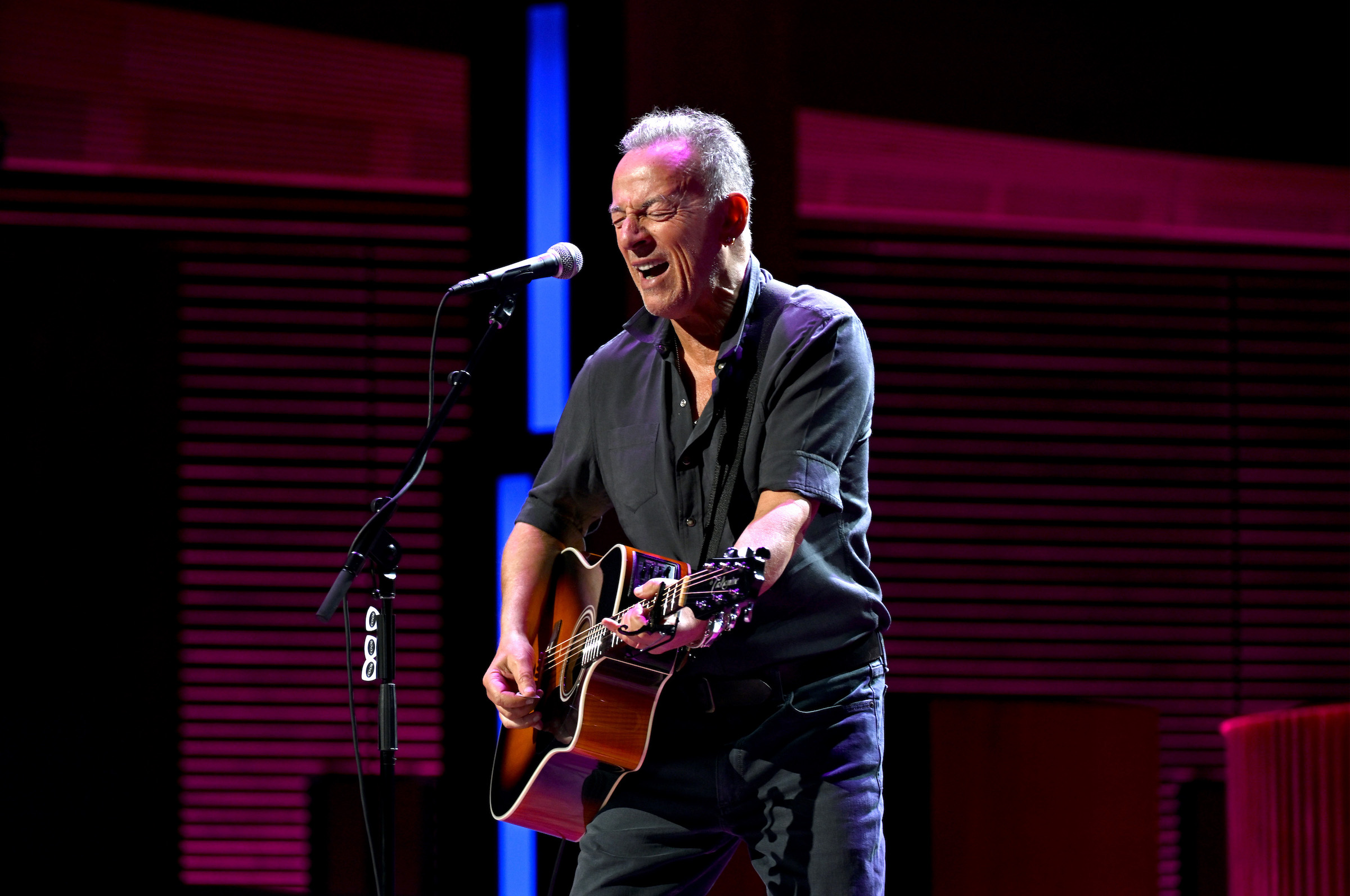
We were singing before I even knew it.
More from Spin:
Matthew Sweet Benefit Show at McCabe’s Guitar Shop Brings Out Old Friends and Collaborators
My Chemical Romance Playing ‘Black Parade’ In Full Next Year
Björk Reveals Environment-Themed ‘Immersive Sound Piece’
By we, unfortunately, I mean I was singing, and I was really trying my best. Sitting, and eventually standing, in front of my computer in my spare bedroom office, I was doing vocal exercises, swaying my head side to side to keep my neck muscles from tensing up and keeping hands on my chest and stomach to feel my breath. I live in a Philly rowhome. This wall is shared with the kid next door who I can hear playing Fortnite through the wall, meaning he can 100% hear me going mmHMMM meemee. mmHMMMM maMa. mHMMMM moMo. All of this to say nothing of the woman I’ve been in a relationship with for 12 years being downstairs—the woman with whom I have absolutely no secrets physical or mental, yet I am terrified of her hearing me singing without it being a goof.
I hadn’t planned for this. I had a whole attack strategy. I was going to ask Eric Vetro about his background as a vocal coach, how he became the vocal coach to the singing world’s heaviest hitters like Ariana Grande and John Legend, and even coached the likes of Austin Butler to be Elvis, Timothee Chalamet to be Bob Dylan, and now Jeremy Allen White to be Bruce Springsteen. I knew singing was inevitable—it was part of the assignment and I jumped at the chance to do some good old-fashioned stunt journalism—but I wanted to try to control the interview and let him coach me when I wanted to be coached. I thought I was slick and that I could say, “So, yeah, show me some of the exercises you’re teaching Jeremy Allen White for the Bruce biopic,” and we’d sing a few bars of “Thunder Road” or something.
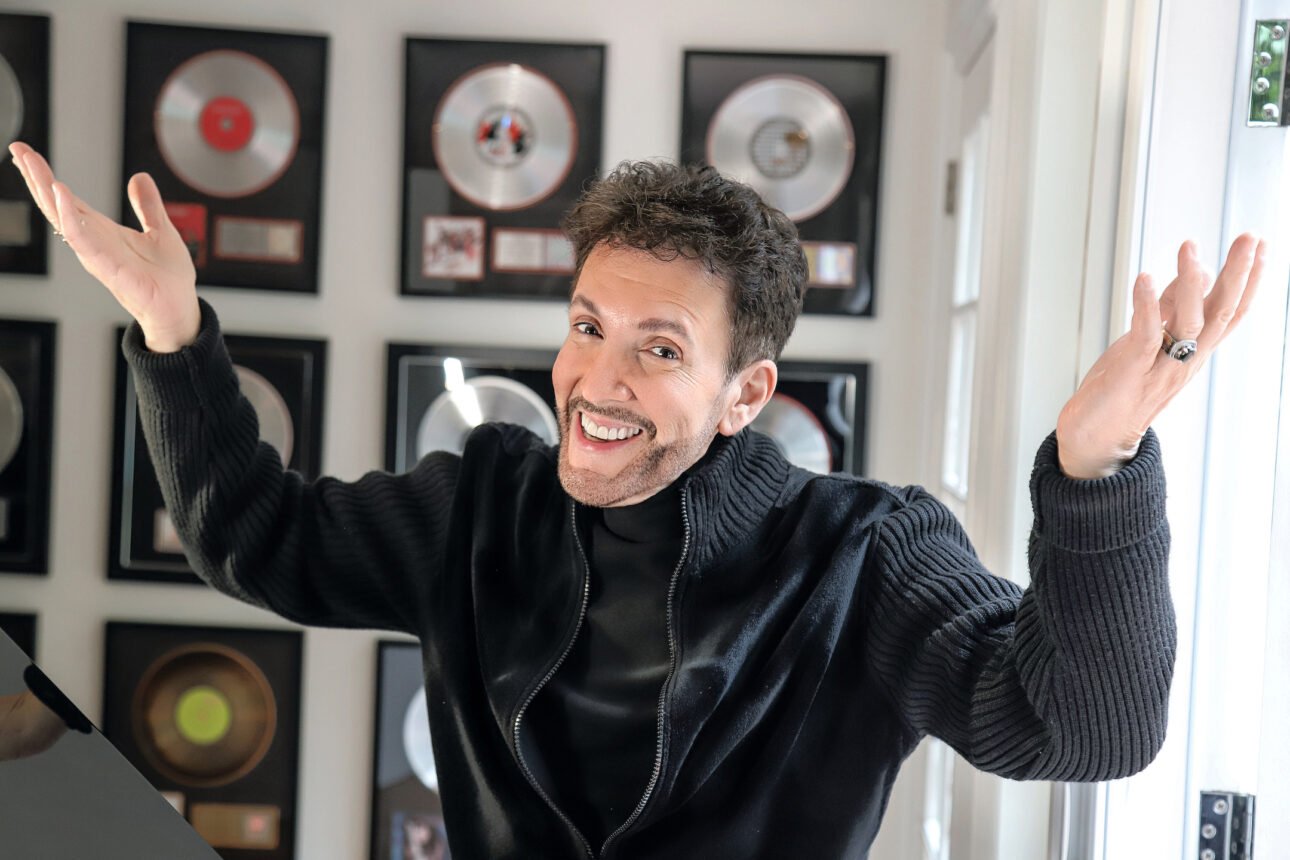
But the thing about Vetro is he has an ability to disarm you and lead you into the work without you even noticing. He pushes you and guides you but never once makes you feel bad or weird about it—quite the opposite. The best way I could describe it is magical.
It’s a superpower. It’s capital-C Coaching.
I ask how he gets his students—some of whom, while big stars, aren’t singers, nor do they really aspire to be aside from the job at hand—to loosen up and shake off the jitters of it all.
This is where he begins his sleight of hand—er, voice?
“I don’t say, ‘We’re going to do this breathing exercise so you relax,’ I just say we’re doing it to increase your breath support, which is true,” he says. “We’re going to increase your lung capacity. But I’m really also doing it because when you start doing deep breathing exercises, you automatically start to relax. Then I try to make it so that there are parts of the lesson [where] I try to make the warming up almost like it is a meditation, the vibrations of where they feel the vowel sounds, like for example.”
He demonstrates forming vowel sounds to resonate at the top of your mouth, and asks me to try. I don’t try to weasel out, because I know he won’t take no for an answer.
HeeHEEE
ooOOOOOooooh
He has no patience for me trying to get back on my own track for this interview. He’s kind and funny and immediately makes you feel like he’s your friend, and maybe he is, so I don’t quite feel so silly rolling my head around back and forth making vowel sounds, trying to match his tone (which is, to no great surprise, excellent).
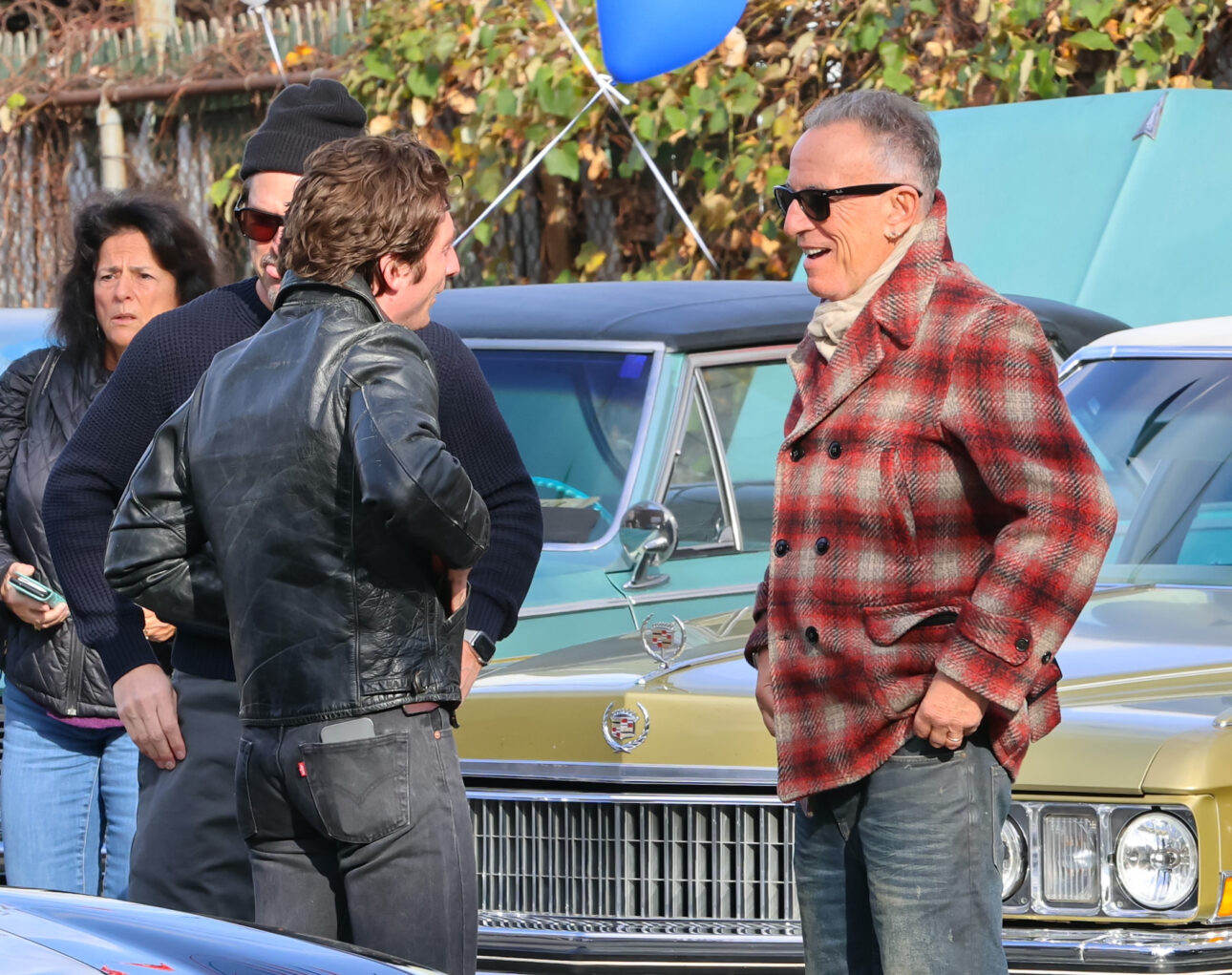
He tells me my voice is in the back of my throat. I know it. My voice changed late and I think I always just tried to make it sound deeper as a coping mechanism that stuck around into my 30s. He teaches me how to keep the voice toward the front. As the lesson, and interview, continue, I can honestly tell my voice is stronger than it was when I started. Maybe part of that is how Eric has loosened me up mentally to where it feels like I’m working with a friend I’ve known for a long time.
“That’s what I have to do with all the actors because none of them want to start singing right away,” he says. “They all want to talk, and I do let them talk. We talk about everything under the sun. However, I know that I have got to start getting in there and getting them to do this because otherwise they’ll procrastinate the entire hour.”
“This is my safe space,” Sabrina Carpenter said in a video promoting Vetro’s BBC Maestro program. “I feel very happy when Eric is around.”
Eventually, he has me practice scales, and I realize that for the length of our interview he’s been sitting at a piano. I interrupt the scales long enough to ask if he’s been at a piano the whole time.
He says yes as if it’s the dumbest question I’ve ever asked. Also, no time for that, back to your scales. We’re on to something.
I’m taking deep breaths and carefully pulling my abdominal muscles in to force the air out.
may may may MAY may may mayyyyy
mo mo mo MO mo mo moooooo
mi mi mi MI mi mi miiiii
Just like in the movies.
All of this because I asked how he prepared White for portraying Springsteen in Deliver Me From Nowhere, the upcoming biopic about the recording of Nebraska. Rather than go into the mental side of it, like watching videos of performances and finding connection points in the songs and act of singing, he teaches me a warm up he’s been doing on White that involves long hissed exhales, and then doing the same thing but with a staccato exhale.
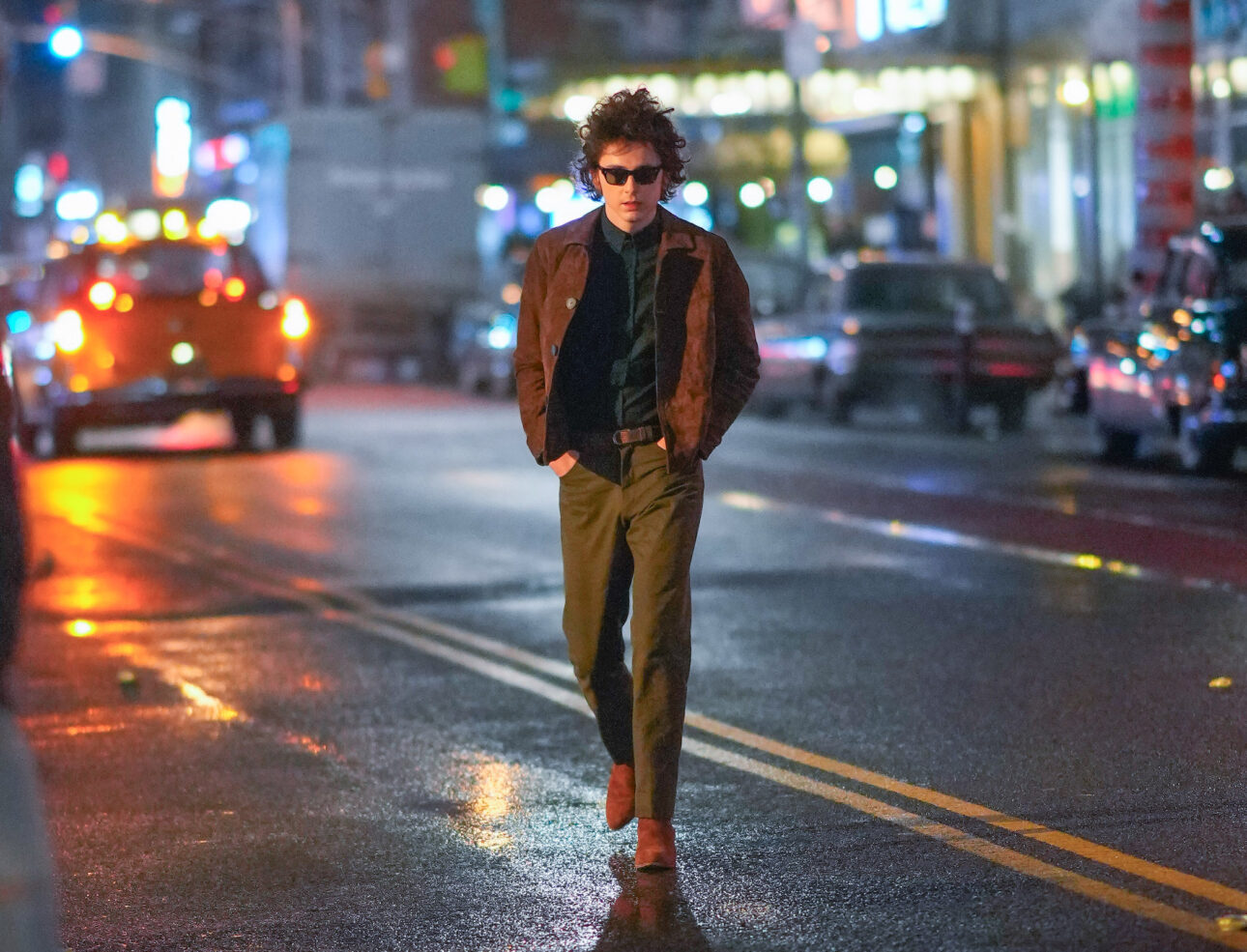
At one point I sit down to ask him something and he motions for me to stand back up. We’re not done. It’s Vetro’s show now.
Vetro exists at the intersection of show and business. He loves being at the center of things. I ask him where he’s calling from—after complimenting the impressive room behind him full of framed records, a guitar, one of two pianos, recording equipment, and a few half-empty bottles of water to keep the vocal cords strong—and he goes on to tell me how his neighborhood in Los Angeles is strategically located to get around the vast urban sprawl as quickly as possible.
“I have people say to me quite often, ‘When was the last time you took a vacation?’ and I go, I haven’t had a real vacation since 2008, which is the truth,” he says. “They go, ‘You need a vacation,’ and I can’t seem to make people understand that I love what I’m doing. I enjoy meeting new people. I enjoy working with people who I’ve known in the world, and now they’re here in my house with me. I’m getting to know them, understand them, hear their history. They go, ‘Oh, you should go to Hawaii and just lie on the beach.’ I said I would go out of my mind being on the beach because all I would be thinking about is what I was missing out on. Oh my God.”
Vetro knew he wanted to be close to the flame of vocal performance of all kinds. His story is the classic Hollywood tale—small-town kid from upstate New York gets the spark from seeing performances on TV, and says “I want to be a part of that world.”
“I want to go to Hollywood and I want to be a part of that,” he says. “And I also wanted to be a part of pop singers, you know, like I loved Ann-Margret in the movies with Elvis. I just thought she was the most beautiful girl who had ever lived. And I would see some of these pop singers and I would go, ‘I want to work with these people. I want to be a part of this whole thing and be a part of the music business and be a part of the film business.’ And so I came out to California.”
After a few instances of being in the right place and prepared for the moment, Vetro’s profile grew and he became who he is now—one of the most sought-after and high-profile coaches in the industry, due in no small part to his unreal ability to make you feel like his friend and lead you into the hard and scary work before you realize. I think it’s genuine, too. I think we really could be friends. I certainly don’t want the interview to end, even if it means I have to sing more.
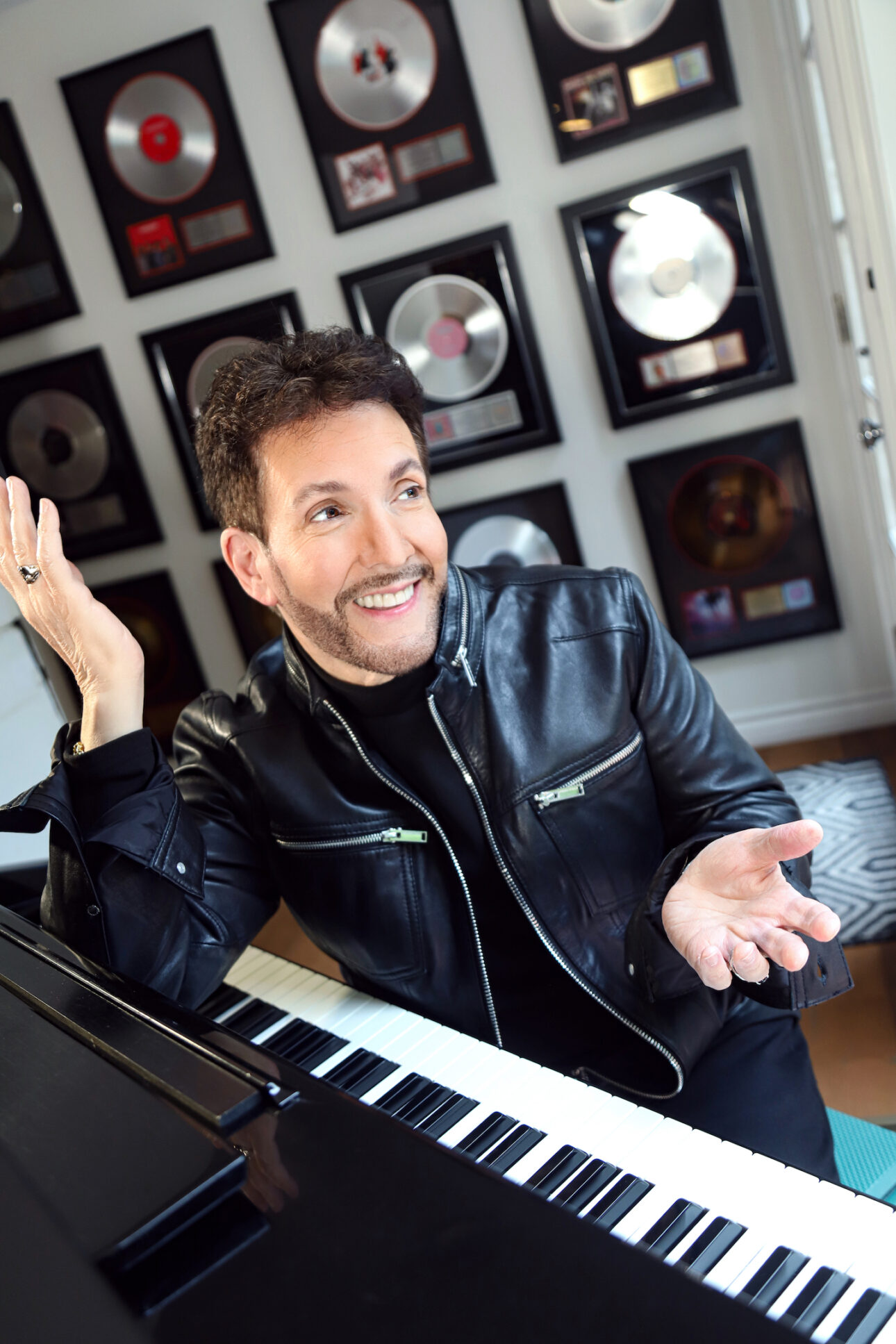
He tells me that aside from demanding he goes on vacation, his friends demand he write a tell-all book about his years brushing against superstardom at their most intimate and vulnerable moments. But he finds his work so unrelentingly positive that he says it’d only be a “tell-a-little” book. No one is interested in hearing about how much of an angel Ariana Grande is or how cool John Legend really is in person or how fun Camila Cabello is to work with.
We’re out of time, though, so I ask him what one tip I can take with me to improve my vocal quality, even just speaking. He doesn’t flinch, as if he’s had it pre-loaded, but his criticism is always constructive. Nothing stings, but he doesn’t sugarcoat it either.
“I think taking deeper breaths because you’re a shallow breather,” he says. “So taking those deeper breaths, allowing your abdominal muscles to expand, you’re filling up your lungs, but allow your abdominal muscles to expand, then pull them in with that hiss. You could do that in the morning in front of the mirror before. And then I think the most important thing for you for your voice is to keep it more upfront in your mouth, not let it fall in the back of your throat. So the best exercise would be, say…”
And just like that, we’re doing another exercise that includes saying “Please come in,” and “Please sit down” after pushing air into the front of your mouth with an mmHMMMM. mmHMMM Please come in. mmHMMMM Sit down.
God damn it. He got me again.
To see our running list of the top 100 greatest rock stars of all time, click here.






